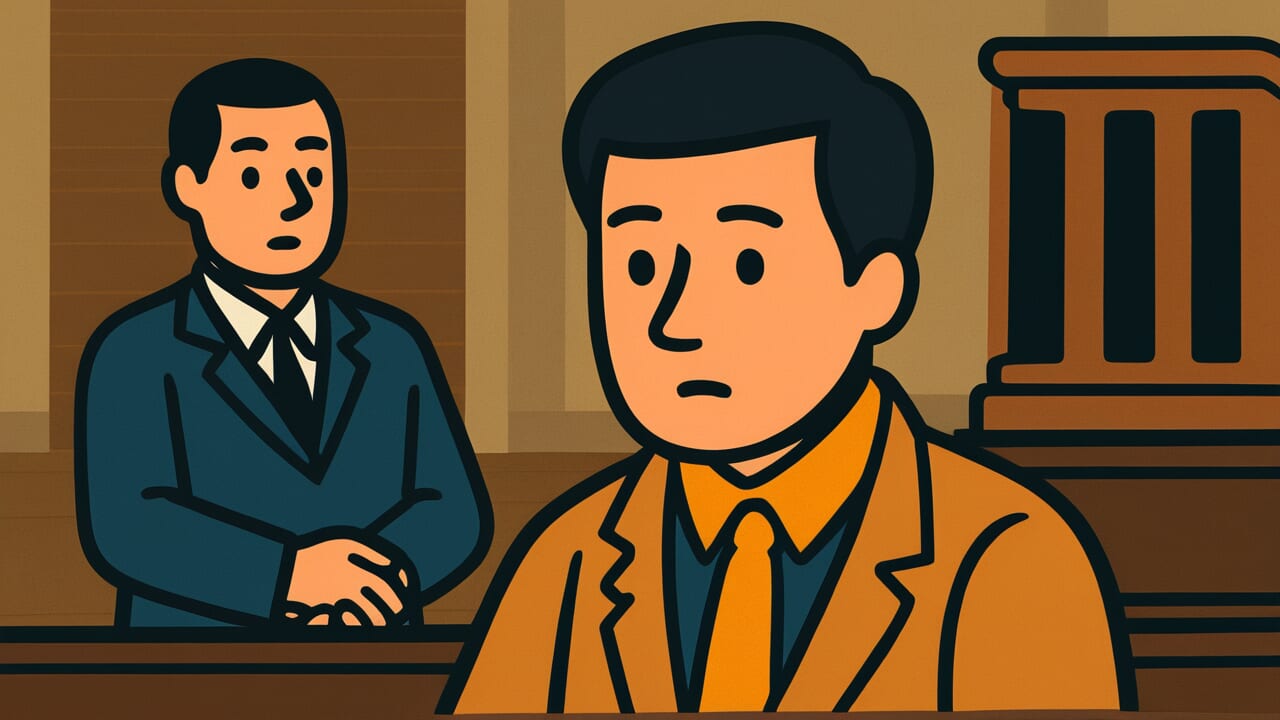How to Read “justice delayed is justice denied”
Justice delayed is justice denied
JUS-tis dih-LAYD iz JUS-tis dih-NYDE
All words use standard pronunciation.
Meaning of “justice delayed is justice denied”
Simply put, this proverb means that when fair treatment takes too long to happen, it becomes worthless and fails its purpose.
The basic meaning focuses on timing and fairness. Justice means treating people fairly and making things right when wrongs happen. When justice gets delayed, it loses its power to help. The proverb teaches that fairness must happen quickly to be meaningful.
We use this wisdom today in many situations. When someone waits years for a court case, the victory might feel empty. When a workplace takes months to address unfair treatment, employees lose trust. When schools ignore bullying for weeks, students suffer more harm. The delay itself becomes another form of unfairness.
What’s interesting about this wisdom is how it reveals timing as part of fairness itself. People often think justice is just about the final decision. But this proverb shows that when justice happens matters as much as what justice decides. Quick action shows respect for those who were wronged.
Origin and Etymology
The exact origin of this specific phrase is unknown, though the concept appears in legal thinking across many centuries. Early forms of this idea show up in legal writings from different time periods. The modern wording became popular in legal and political discussions during more recent centuries.
The context comes from how legal systems developed over time. Ancient societies recognized that delayed decisions could make problems worse. When disputes dragged on, evidence disappeared and witnesses forgot details. People lost faith in systems that moved too slowly to help them.
The saying spread through legal education and political movements. Lawyers and judges used it to argue for faster court processes. Civil rights leaders adopted it to demand quicker action on unfair laws. The phrase moved from legal circles into everyday language as people recognized its broader truth about fairness in all areas of life.
Interesting Facts
The word “justice” comes from Latin “justitia,” meaning righteousness or fairness. This connects to “justus,” meaning “just” or “right.” The legal meaning developed as Roman law influenced other legal systems.
The phrase uses parallel structure, repeating “justice” and “is” to create emphasis. This repetition makes the saying memorable and gives it a formal, legal sound that matches its serious message.
Usage Examples
- Lawyer to client: “We need to push for an earlier court date – justice delayed is justice denied.”
- Activist to reporter: “The victims have been waiting three years for their case to be heard – justice delayed is justice denied.”
Universal Wisdom
This proverb reveals a fundamental truth about human psychology and social cooperation. When people experience unfairness, they need acknowledgment and correction to maintain trust in their community. Time becomes the enemy because delayed response sends a message that the wrong wasn’t serious enough to address quickly. This creates a second injury on top of the original harm.
The wisdom exposes how justice serves multiple purposes beyond just fixing problems. Quick response validates the victim’s experience and shows the community takes their welfare seriously. It also prevents the wrongdoer from believing their actions were acceptable. When justice moves slowly, these crucial messages get lost. The victim feels forgotten, the community loses confidence, and the wrongdoer may repeat their behavior.
This pattern exists because humans are social creatures who depend on group cooperation for survival. Our ancestors learned that unaddressed wrongs could tear communities apart. Swift response to unfairness became essential for maintaining the trust that holds groups together. We inherited this need for timely justice because societies that ignored it often collapsed. The proverb captures this ancient understanding that fairness without speed fails to serve its deeper purpose of preserving social bonds and preventing future harm.
When AI Hears This
Justice systems lose power like batteries running down over time. When courts delay decisions, the emotional energy needed for healing starts fading. People naturally move on and build new mental walls around old wounds. The victim stops expecting help, while everyone else forgets why it mattered.
Humans treat fairness like fresh food that spoils if left sitting too long. Our brains are wired to expect quick responses to wrongdoing. When justice takes months or years, it feels stale and pointless. The original hurt becomes buried under new daily concerns and relationships.
This timing obsession actually makes perfect sense for survival. Quick justice prevents small problems from growing into bigger conflicts that tear groups apart. Humans who demanded fast fairness kept their communities stable and strong. What looks impatient is really an ancient wisdom about keeping peace.
Lessons for Today
Living with this wisdom means recognizing that timing shapes the value of our responses to unfairness. When we witness wrongs, quick acknowledgment matters as much as eventual solutions. This doesn’t mean rushing to judgment, but rather moving promptly through proper processes. Understanding this helps us see why people become frustrated with slow responses, even when the final outcome is fair.
In relationships and communities, this wisdom guides how we handle conflicts and complaints. Listening quickly shows respect, even when solutions take time. Explaining delays helps maintain trust when immediate action isn’t possible. The key insight is that people need to feel heard and see movement, not just wait for perfect outcomes. Small, quick steps often matter more than delayed grand gestures.
For groups and organizations, this understanding reveals why efficient processes serve justice better than perfect ones. Systems that respond quickly, even with simple acknowledgments, often succeed better than those that craft perfect solutions slowly. The wisdom reminds us that justice lives in the experience of those seeking fairness, not just in the final decisions. When we embrace this truth, we can create responses that serve both accuracy and timeliness, honoring the full meaning of justice.



Comments